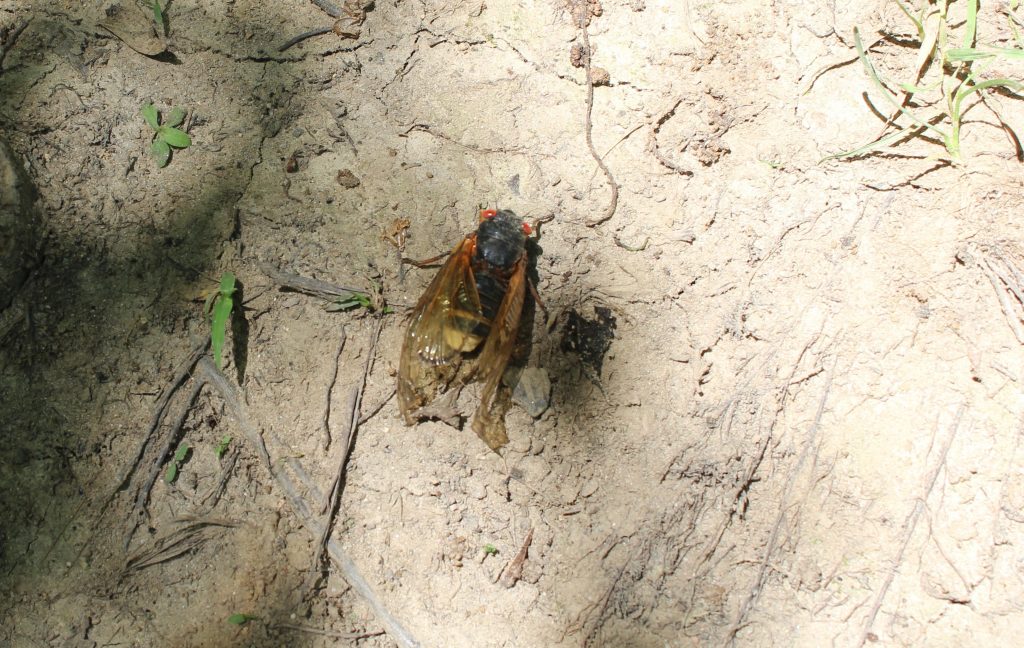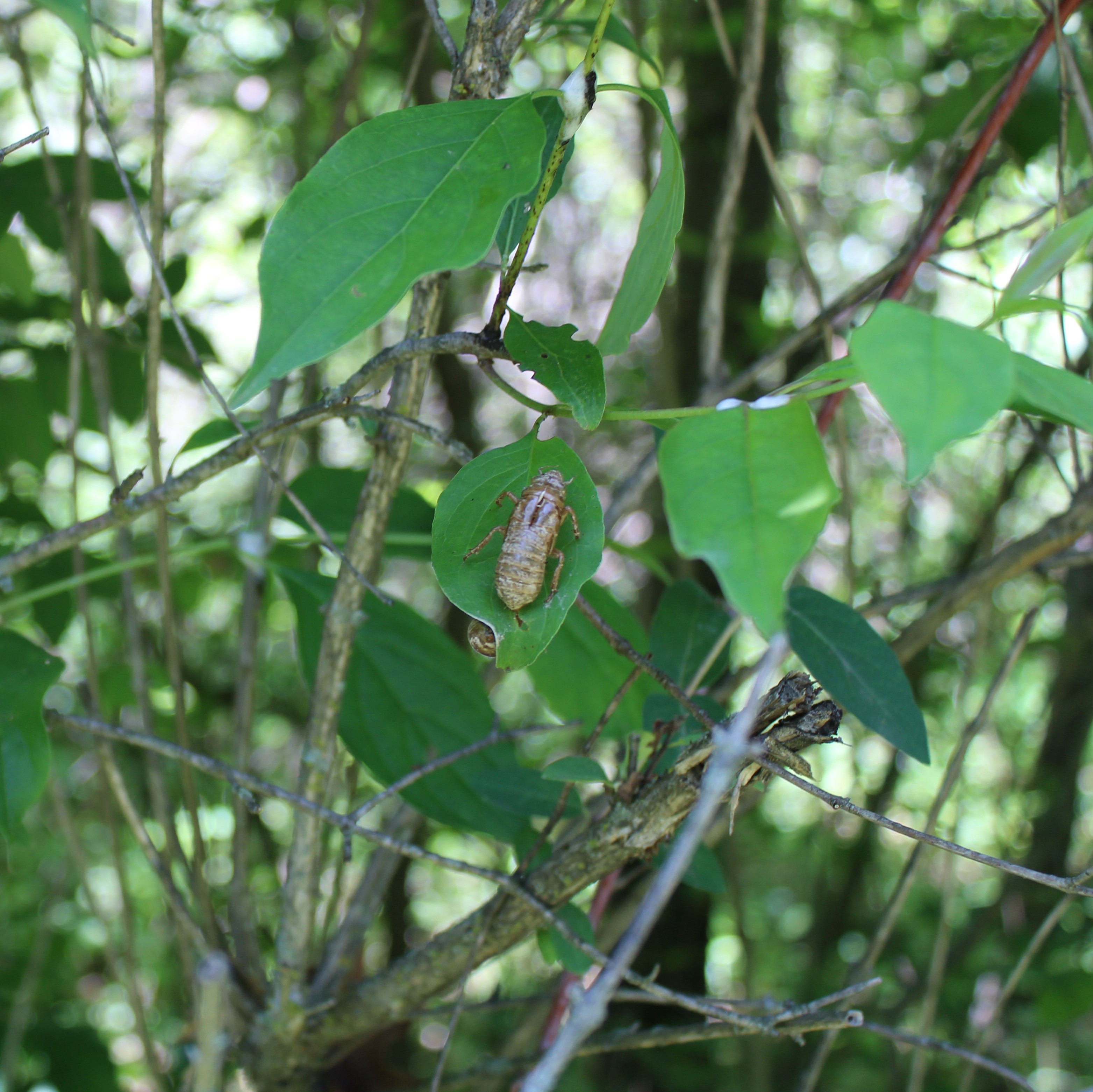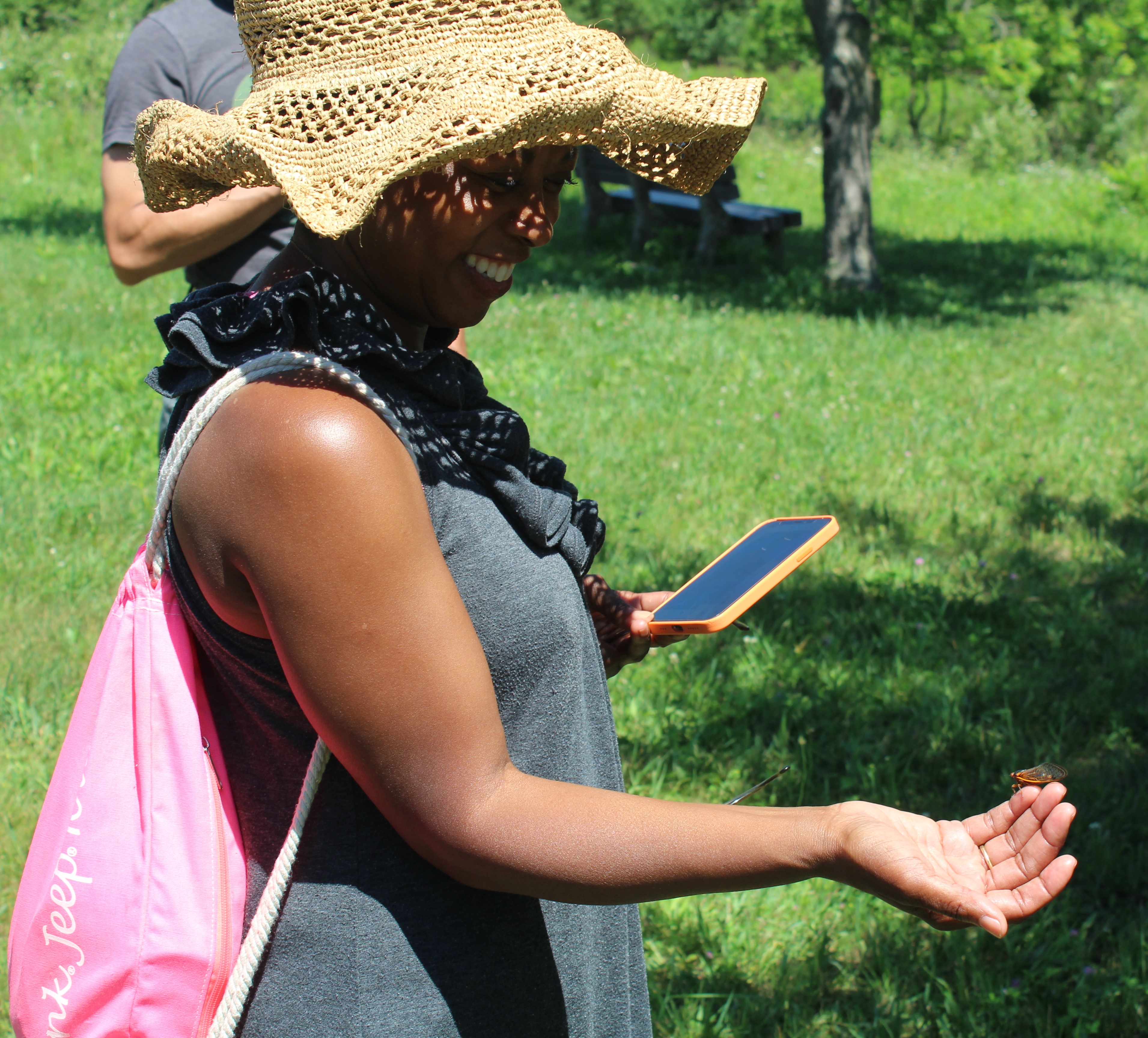Hear Brood X Cicadas at Their Peak in Michigan
Cicadas are known for their sound, which they use to attract mates — their primary goal for their 2-4 weeklong lives above ground.

Every year a group of annual cicadas come out in the summer and emit an electrical-sounding buzz. But there are some cicadas that only come out once every 13 years, and others that come out just once every 17 years.
The largest cohort of the latter group is known as Brood X. Since mid-May they’ve been emerging in 15 states, including the southern part of Michigan.
Detroit Audubon recently hosted a cicada walk in Washtenaw County when the bugs were at their peak.
Listen: Hear people delight in the sound of individual Brood X cicadas recorded in Michigan.
Thousands of Brood X cicadas are buzzing around the Cherry Hill Nature Preserve in Superior Township just outside Ann Arbor. Most of the bugs are high up in the trees. Down below a group of people wait to begin a guided stroll through the 160-acre area, hoping to take in some of the cicadas up close. These cicadas have been growing underground since 2004, feeding on juices from plant and tree roots.

“As you go along you may see a lot of emergence holes where the cicadas came out,” says Jack Smiley, one of the leaders of the Detroit Audubon tour, the founder of the Southeast Michigan Land Conservancy and the president of the Michigan Land Conservancy.
The holes he’s gesturing to are empty now, but immature cicadas emerged from them and other similar holes starting in mid-May. When the nymphs came out, they were brown and a little larger than a kidney bean. They headed to the nearest tree where they molted into their adult shape, leaving behind their former exterior. There are hundreds of these hollow brown forms scattered around the preserve, stuck in place on the leaves and tree trunks where they were abandoned.
As the walking tour emerges from the shade of the woods into a grassy, sunny pathway, more and more adult cicadas begin to appear. Two onlookers admire a small tree with about a dozen cicadas sitting on it.
“They kinda look like a large beetle with big red eyes and wings,” says Pat Burke of Grosse Ile.
“Yeah. Like a large fly and a grasshopper,” says Rick Schmidt, also of Grosse Ile. With their black bodies and orange wings, Schmidt says the Brood X cicadas are in Harley Davidson colors.
One of the insects flies past Ann Arbor resident Monica Colvin. She ducks to avoid it. “I’m not a big fan of bugs landing on me, although I’m really excited to be here and to hear them,” says Colvin.
Brood X Cicada Sounds: “It’s Magical”
Cicadas are known for their sound. They make it to attract mates, the primary goal of their 2-4 weeklong lives above ground. They create the sound by rapidly clicking part of their tymbal organ, a special body part on their abdomen.
Collectively, the insects make a steady droning sound. But on an individual level there are varying rhythms and pitches.
Listen: Cicada call sounds like a familiar old tune.
A cicada jumps on top of the shoulder and then the hat of Caro resident Carol Cook. Before flying away it emitted a small sound that Cook says was familiar. “It reminded me of the Wizard of Oz and the ‘Oh wee oh.’”
Once a cicada believes it has attracted a mate, it changes its rhythm. One attendee who caught the noise says it sounds like a vibrating cellphone.
Listen: Cicada call near a potential mate.
“It’s magical, it really is to me to see them flying around and to hear them and the little noises,” says Burke, one of the Grosse Ile residents. “One landed on my arm and it made this little, almost a whistling noise. It sounded like something you’d hear in a movie with a spaceship, a little weird noise,” says attendee Pat Burke.
The End … For Now

Before the walk returns back into the woods, the grass pathway opens up into a meadow. There, Monica Colvin, the Ann Arbor woman who was ducking to avoid cicadas earlier, stands admiring a cicada perched on her finger. She admits she may have misjudged the creatures earlier.
“They’re so light. They’re not like flying cockroaches at all,” she says.
After mating, the cicadas die off within a few weeks. But before the females go, they inject their eggs into the twigs of tree branches. Over the course of the next month or so the eggs will hatch and tiny baby cicadas — about the size of rice grains — will fall down into the ground. There they will burrow and feed for the next 17 years.
By July, most if not all of the Brood X cicadas have already emerged, mated and died off. If you didn’t get a chance to see them, be sure to mark your calendar for June 2038, when the cicadas that were born this summer will emerge in Cherry Hill Nature Preserve and across 14 other states.
Trusted, accurate, up-to-date
WDET is here to keep you informed on essential information, news and resources related to COVID-19.
This is a stressful, insecure time for many. So it’s more important than ever for you, our listeners and readers, who are able to donate to keep supporting WDET’s mission. Please make a gift today.
